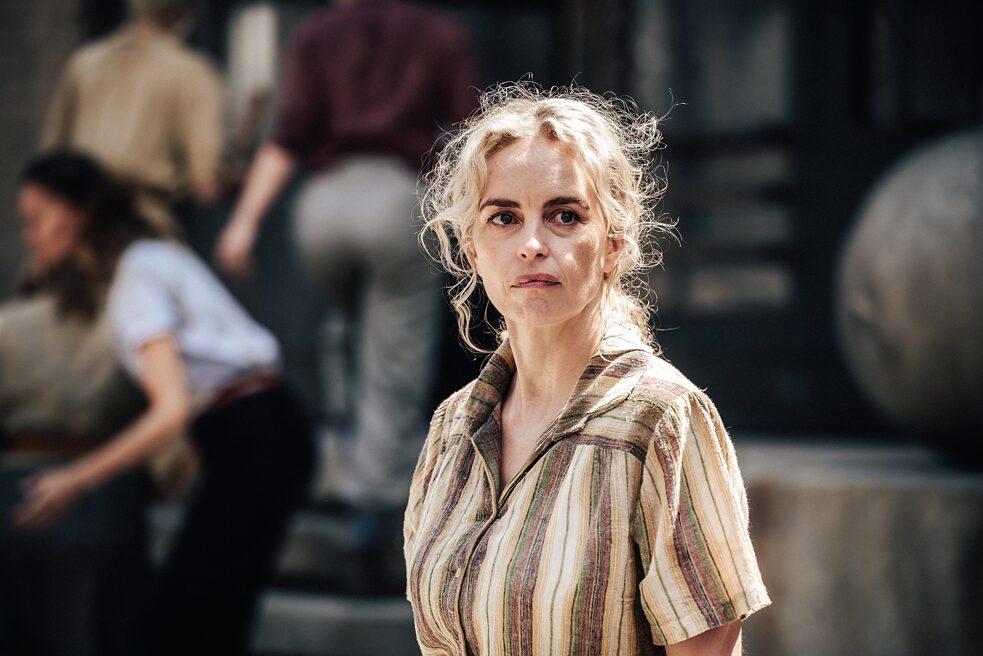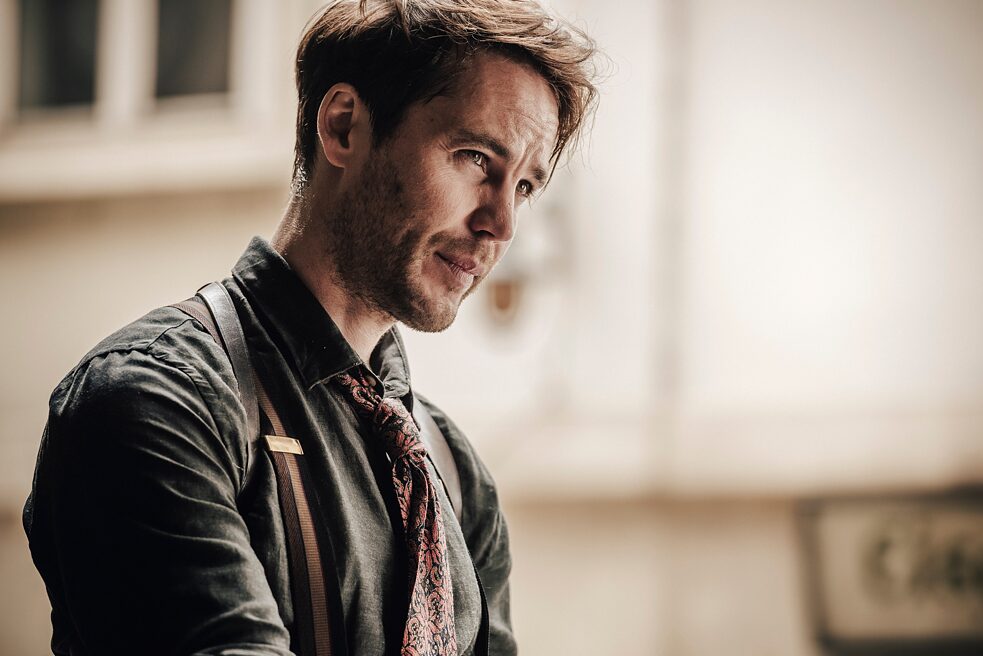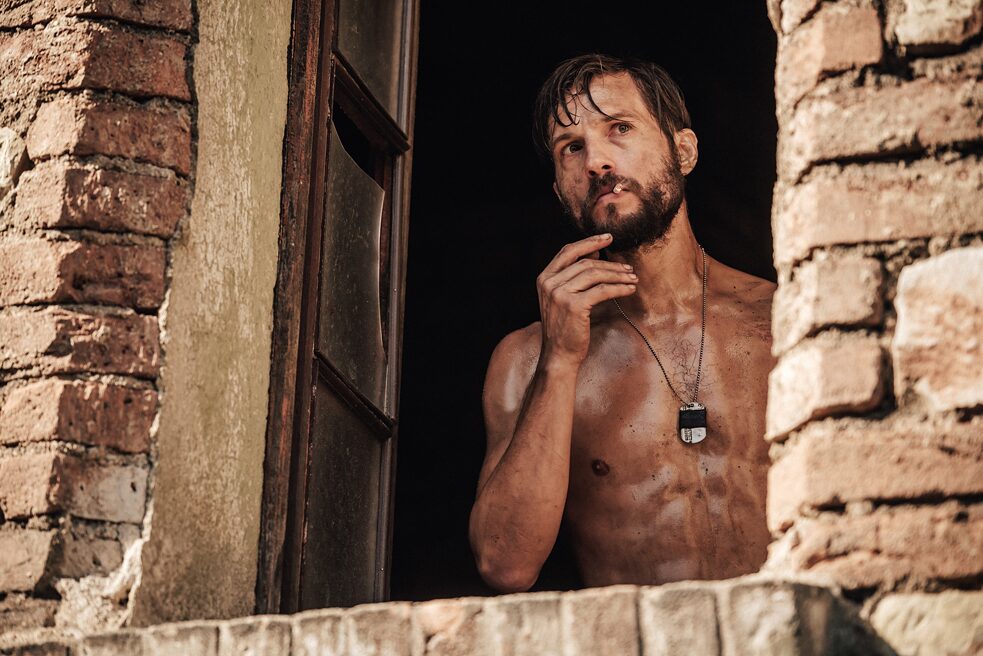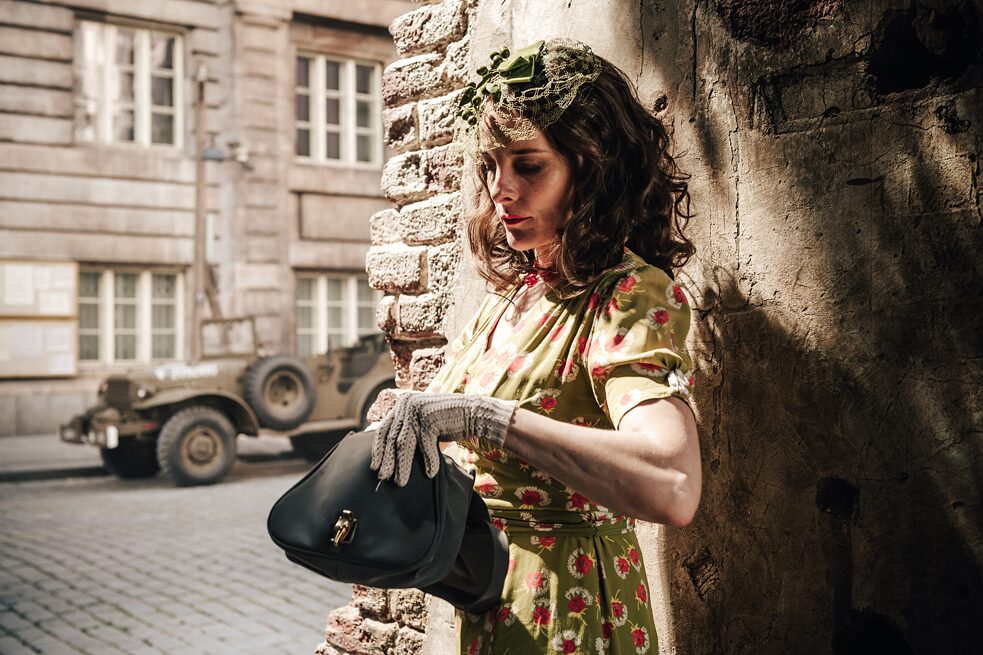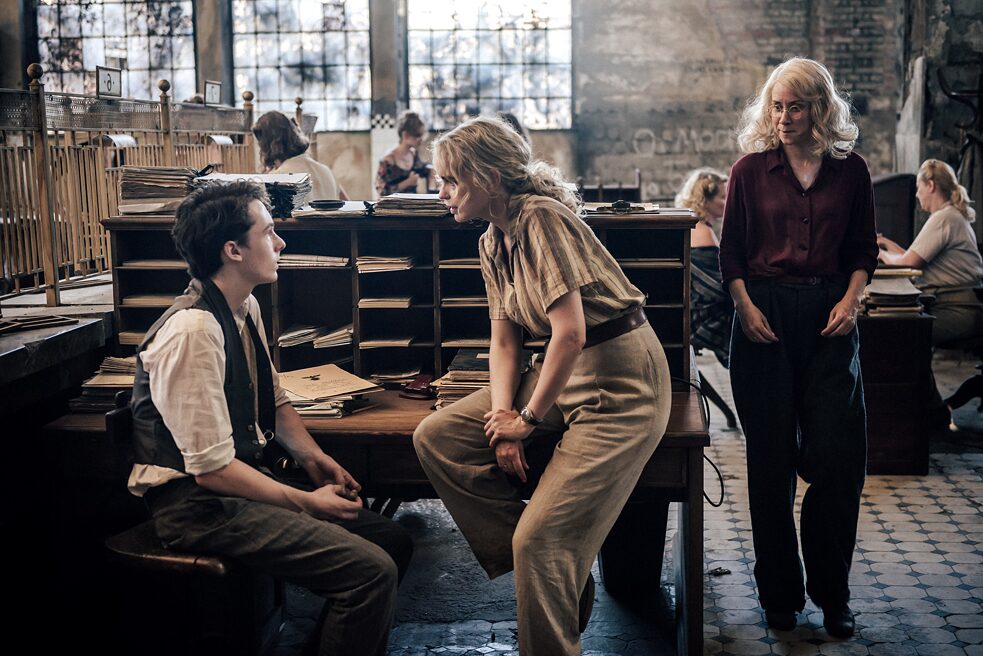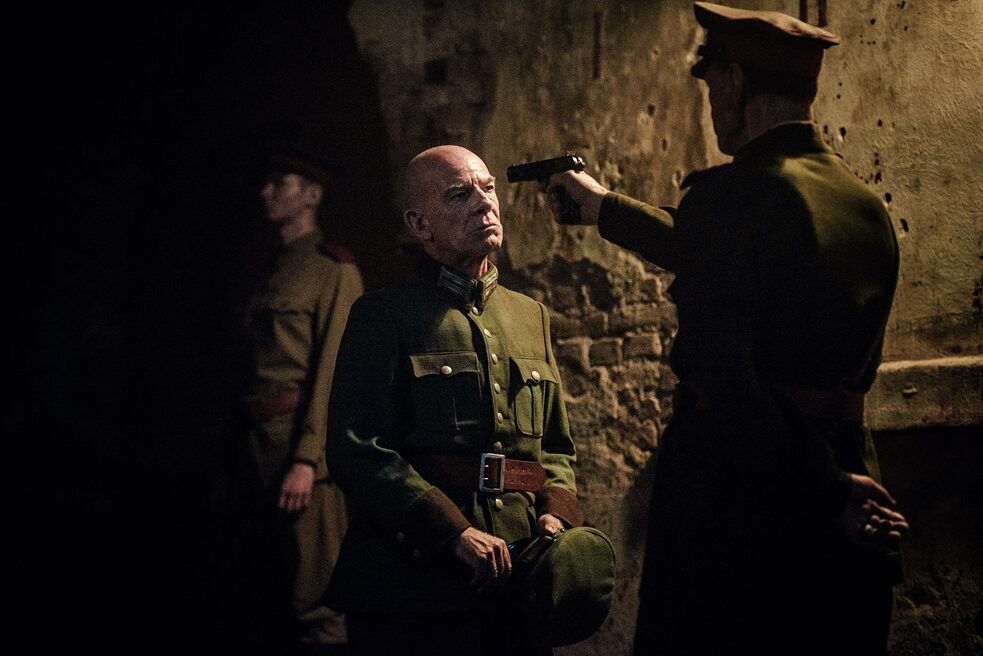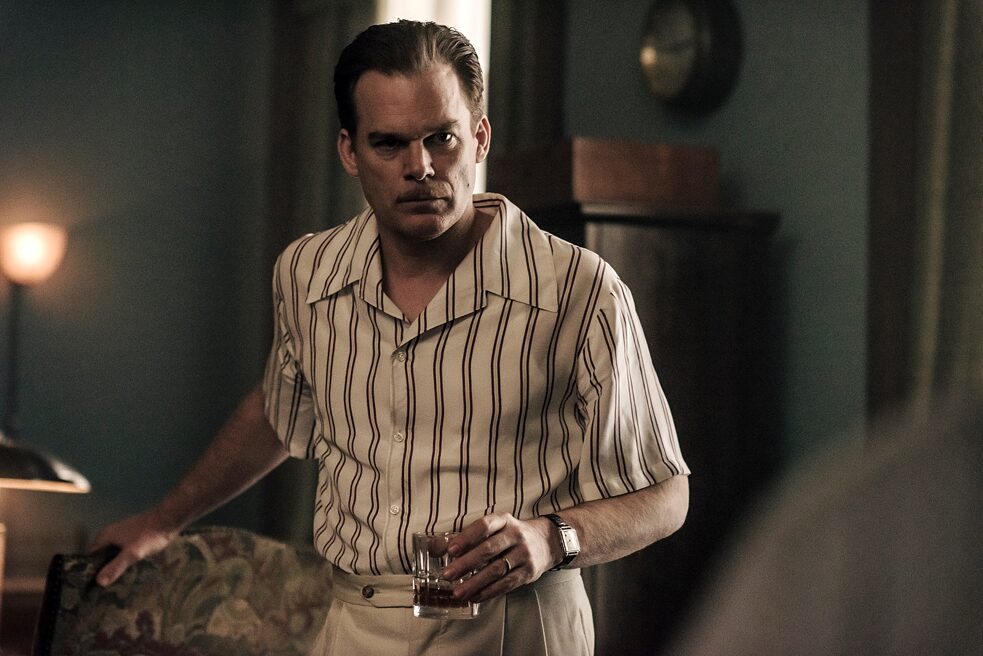German Series in the USA
Fatal game in the shadows: Nordic noir in post-war Babylon Berlin
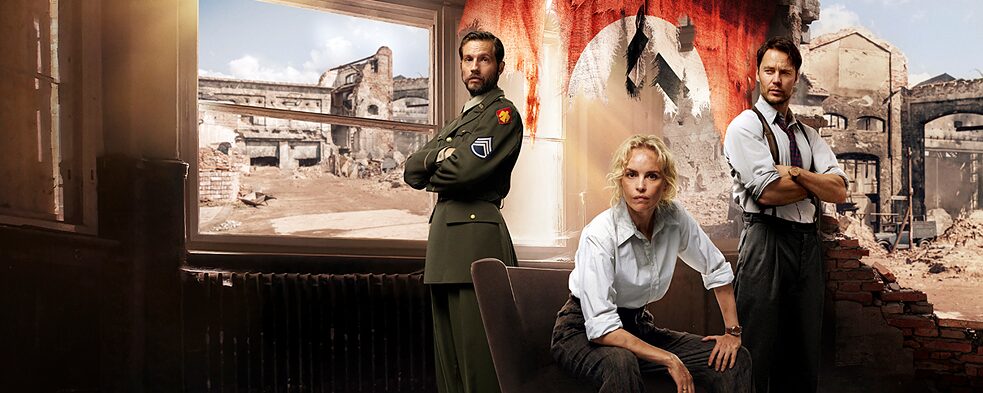
Change begins in darkness, apparently. And the places where New York cop Max McLaughlin pursues his investigations could hardly be darker. In the ZDF series “The Defeated”, Swedish showrunner Måns Mårlind (“The Bridge”) explores a bleak chapter of German history: we find ourselves in Berlin in the year zero, in the first summer following the Second World War – a lawless and barbaric time. Mårlind’s hunt for a criminal through the ruins of the bombed-out city is correspondingly brutal – but also reasonably gripping.
By Angela Zierow
In July 1946, Brooklyn police officer Max McLaughlin (Taylor Kitsch) signs up voluntarily for duty in Berlin – deliberately heading into the realm of shadows. The city has been reduced to rubble, its citizens are camped out among the debris and bomb craters – food is the number one priority and morality is forced to take a back seat. Anyone who still has a shred of decency in them is plagued by the guilt that Nazi Germany has brought upon itself, and tortured by the visible and invisible scars left by the world war. As if mockingly, the sky above the ruins is a wonderful deep summer blue. McLaughlin’s job is to arrange for an NYPD-style police precinct to be set up in the American sector. Easier said than done: the motley crew he finds cramped together in a makeshift office in a former bank building are as inexperienced as they are poorly equipped, and disparagingly dubbed “scarecrows” by the locals. In all seriousness, how is a group of provisional cops armed with wooden cudgels supposed to make a city safer that has seen 3,000 murders and 200,000 rapes since the end of the war?
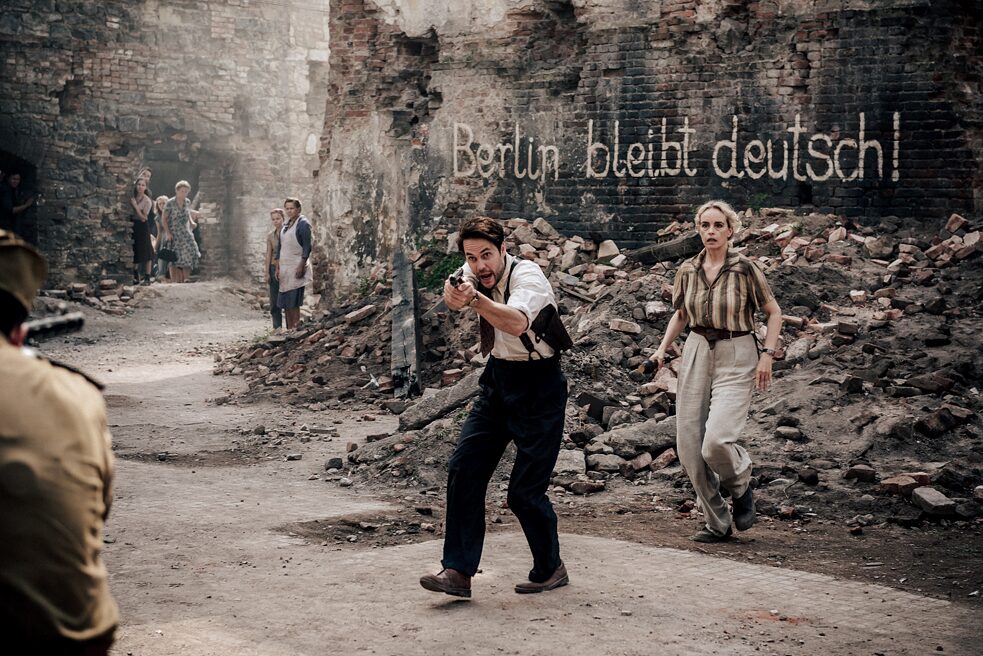 Max McLaughlin (Taylor Kitsch) fights alongside his Berlin police colleague Elsie Garten (Nina Hoss) for law and order on the streets of Berlin. | © ZDF Photo: Stanislav Honzik.
Max McLaughlin (Taylor Kitsch) fights alongside his Berlin police colleague Elsie Garten (Nina Hoss) for law and order on the streets of Berlin. | © ZDF Photo: Stanislav Honzik.
One big rotten cake, four slices
It is not only many Berliners who are involved in shady deals between the piles of rubble and the secret tunnels – members of the four occupying forces are, too. These can take the form of anything from black-market trading and bribery to contract killings. “One big rotten cake, four slices", as McLaughlin’s superior, US Vice-Consul Tom Franklin (Michael C. Hall), observes laconically, while German Police Chief Karl Heinlein (Martin Wuttke) has the following words for the newcomer: “One piece of advice: In a place with no laws you need a sharp sense of right or wrong - and quick reflexes.”McLaughlin discovers just how essential to survival this advice is when, shortly afterward, he’s confronted with his first Berlin crime scene: two GIs have been battered to death, a double murder with explosive potential galore. McLaughlin’s German colleague Elsie Garten (Nina Hoss) learns that “back-street abortionist” Dr. Hermann Gladow (Sebastian Koch) was involved in the violent crime. Working as a gynecologist before the end of the war, Gladow comes up with a perfidious strategy to exploit the plight faced by women who have been raped. He performs abortions and other services in return for assaults, espionage, prostitution, and even murder. It’s a lucrative business, for there are countless abused women in the city. “Once he has decided to help you, you belong to him”, says a woman who witnessed the killing. She is not willing to say another word. But she turns up dead the next day all the same. The “Boogeyman of Berlin” takes no risks himself, but appears to be familiar with every one of the city’s dirty secrets as a result. And there’s no shortage of them, even in McLaughlin’s milieu: while his wife Claire (Tuppence Middleton) drowns her boredom in alcohol, Vice-Consul Franklin exploits the post-war chaos to help high-ranking Nazis go into hiding – favors for which he is paid in looted art.
Max and Moritz finish the nazis
Yet McLaughlin is tortured not only by the constant question of whom he can trust in this jungle of lies, intrigues and secrets. His missing brother Moritz (Logan Marshall-Green), a US Army infantryman during the war, has turned up in Berlin. Their reunion throws the detective into a crisis of conscience. Waging a personal crusade against Nazi stooges who have gone into hiding, the ex-soldier leaves horribly disfigured corpses in his wake, and to boot even calls upon his brother to help him: “Max and Moritz finish off the Nazis – a cautionary tale for Nazi boys and girls. That sounds pretty good.” Like it or not, Max has to clean up after the unappetizing “pranks” played by his severely psychologically damaged brother. When the frustrated cop is asked at some point by his colleague Elsie to say “something positive about this goddam place”, this is his pithy response: “There haven’t been any rats here since last year’s outbreak of typhoid. They couldn’t find anything else to eat.“ Meanwhile, the chief of the makeshift police precinct is battling with her own demons. To free her husband Leopold (Benjamin Sadler), who is a prisoner of war, she is forced to spy for a Russian commander.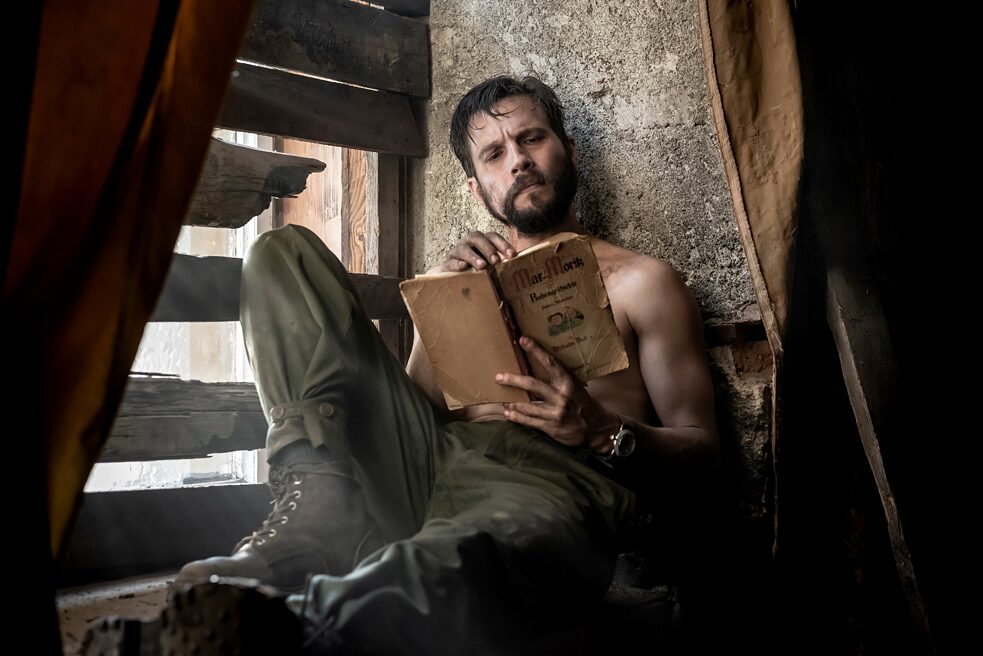 Inspired by Max and Moritz's pranks, Moritz (Logan Marshall-Green) plans a new assassination attempt. | © ZDF Photo: Stanislav Honzik.
Inspired by Max and Moritz's pranks, Moritz (Logan Marshall-Green) plans a new assassination attempt. | © ZDF Photo: Stanislav Honzik.
Rubble mounds and bomb craters, Rape and Murder
In “The Defeated”, thriller specialist Måns Mårlind braves a glance into the abyss – something that German filmmakers probably wouldn’t have dared do in this form, fearing that they could so easily take a wrong step in this historical minefield. For the acclaimed Swedish showrunner, on the other hand, zero-hour after the Second World War is a “cinematic no man’s land” that he was determined to explore. As he told German movie magazine Blickpunkt: Film, this “incredibly exciting and very extreme time” could not “be more fertile ground for storytellers”. He believes this is the kind of situation in which one is forced to examine who one really is. Despite being so close to his heart, however, Mårlind’s pet project initially met with resistance. Mountains of debris and bomb craters, rapes and murders, the trauma of war, uprooted people – he was told that all of this is much too dark and depressing to make for an entertaining evening of television.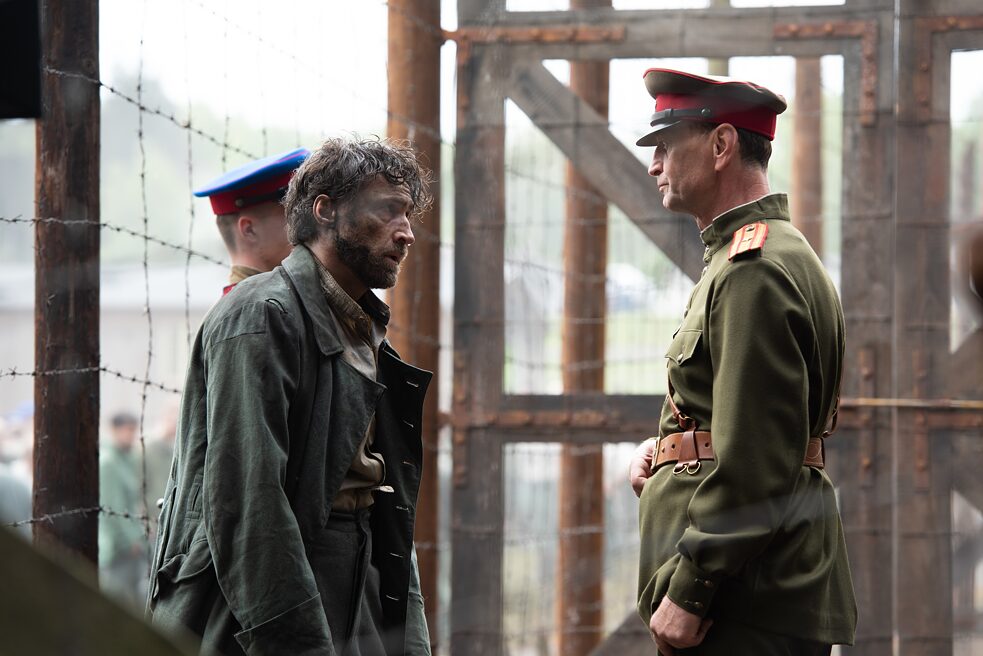 Leopold Garten (Benjamin Sadler, left) is taken prisoner by the Russians and is put under pressure by Colonel Izosimov (Ivan Gvera, right). | © ZDF Photo: Stanislav Honzik.
Leopold Garten (Benjamin Sadler, left) is taken prisoner by the Russians and is put under pressure by Colonel Izosimov (Ivan Gvera, right). | © ZDF Photo: Stanislav Honzik.
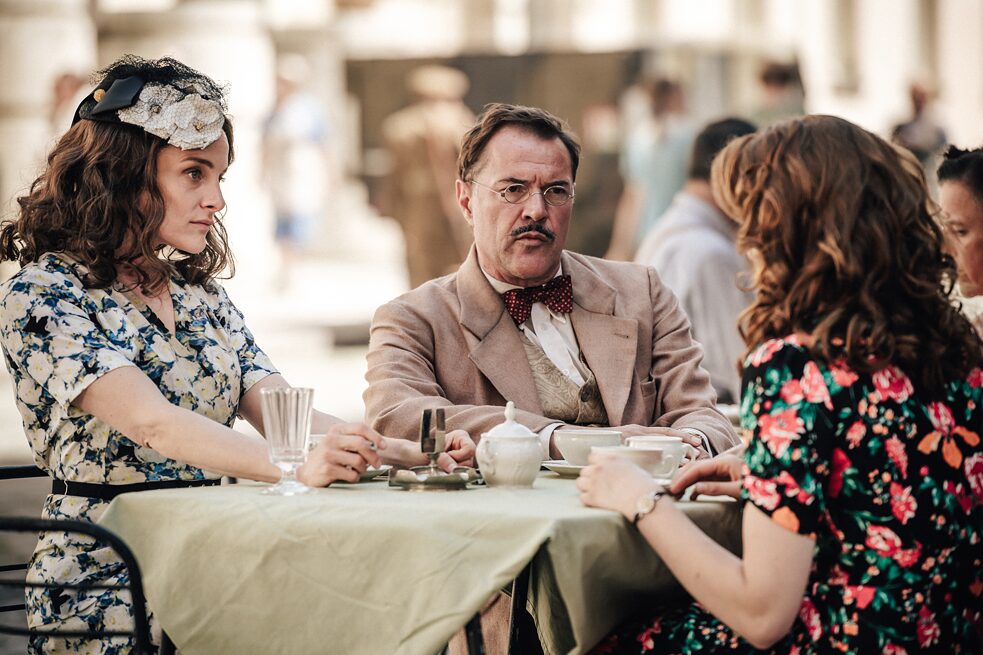 Marianne (Anne Ratte Polle, left) and Dr. Hermann Gladow (Sebastian Koch, center) try to win Karin (Mala Emde, right) for a deal. | © ZDF Photo: Stanislav Honzik.
Marianne (Anne Ratte Polle, left) and Dr. Hermann Gladow (Sebastian Koch, center) try to win Karin (Mala Emde, right) for a deal. | © ZDF Photo: Stanislav Honzik.
POST-WAR HEIDERÖSLEIN
Nonetheless, the Swede’s latest offering cannot match the finesse of his global hit “The Bridge”. The plot twists are too predictable, the characters too roughly drawn, the dialogues overly pregnant with pathos, and the cliches far too abundant. In the German-speaking world, it was not only for its explicit brutality that “The Defeated” provoked a mixed response. The FAZ’s verdict was that it is difficult “to get a clear picture of the kind of fairground of entertaining cinematic post-war attractions” the series was trying to create during its nearly eight hours. The German edition of GQ criticized that the eight-part series “juggles so frivolously with historical guilt complexes as if this were a children’s game in which one hits the mark at times but is also allowed to miss”, while Berliner Zeitung found the post-war thriller to be a “bizarre horror story”.Die Welt, by contrast, compared the series to “The Third Man”, praising “The Defeated” overall for being an almost perfect blend of American genre film, Scandinavian crime story and German historical television”. Stern magazine’s headline was “Brutal Berlin – this ZDF series will be competition for Tarantino” and drew parallels with “Inglourious Basterds”. Audiences liked it as well, with series aficionados on German movie websites already busy speculating about the content of the second season that Måns Mårlind is already writing. It certainly has more than enough potential material for further “pranks” by the estranged brothers Max and Moritz.
Credits:
The Defeated ( original Titel: "Shadowplay") Directed by Björn Stein, Måns Mårlind, written by Måns Mårlind. Cast:Taylor Kitsch, Logan Marshall-Green, Nina Hoss, Michael C. Hall, Sebastian Koch, Mala Emde.
Length Season 1: 8 episodes @ approx. 60 mins each.
